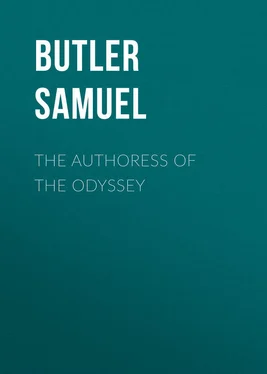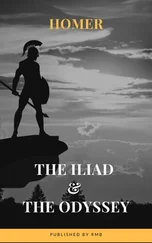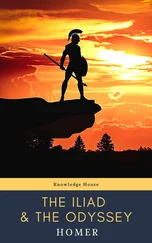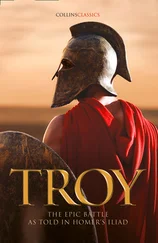Samuel Butler - The Authoress of the Odyssey
Здесь есть возможность читать онлайн «Samuel Butler - The Authoress of the Odyssey» — ознакомительный отрывок электронной книги совершенно бесплатно, а после прочтения отрывка купить полную версию. В некоторых случаях можно слушать аудио, скачать через торрент в формате fb2 и присутствует краткое содержание. Жанр: foreign_antique, foreign_prose, на английском языке. Описание произведения, (предисловие) а так же отзывы посетителей доступны на портале библиотеки ЛибКат.
- Название:The Authoress of the Odyssey
- Автор:
- Жанр:
- Год:неизвестен
- ISBN:нет данных
- Рейтинг книги:5 / 5. Голосов: 1
-
Избранное:Добавить в избранное
- Отзывы:
-
Ваша оценка:
- 100
- 1
- 2
- 3
- 4
- 5
The Authoress of the Odyssey: краткое содержание, описание и аннотация
Предлагаем к чтению аннотацию, описание, краткое содержание или предисловие (зависит от того, что написал сам автор книги «The Authoress of the Odyssey»). Если вы не нашли необходимую информацию о книге — напишите в комментариях, мы постараемся отыскать её.
The Authoress of the Odyssey — читать онлайн ознакомительный отрывок
Ниже представлен текст книги, разбитый по страницам. Система сохранения места последней прочитанной страницы, позволяет с удобством читать онлайн бесплатно книгу «The Authoress of the Odyssey», без необходимости каждый раз заново искать на чём Вы остановились. Поставьте закладку, и сможете в любой момент перейти на страницу, на которой закончили чтение.
Интервал:
Закладка:
Samuel Butler
The Authoress of the Odyssey / Where and when she wrote, who she was, the use she made / of the Iliad, and how the poem grew under her hands
PREFACE
The following work consists in some measure of matter already published in England and Italy during the last six years. The original publications were in the Athenœum , Jan. 30 and Feb. 20, 1892, and in the Eagle for the Lent Term, 1892, and for the October Term, 1892. Both these last two articles were re-published by Messrs. Metcalfe & Co. of Cambridge, with prefaces, in the second case of considerable length. I have also drawn from sundry letters and articles that appeared in Il Lambruschini , a journal published at Trapani and edited by Prof. Giacalone-Patti, in 1892 and succeeding years, as also from two articles that appeared in the Rassegna della Letteratura Siciliana , published at Acireale in the autumn of 1893 and of 1894, and from some articles published in the Italian Gazette (then edited by Miss Helen Zimmern) in the spring of 1895.
Each of the publications above referred to contained some matter which did not appear in the others, and by the help of local students in Sicily, among whom I would name the late Signor E. Biaggini of Trapani, Signor Sugameli of Trapani, and Cavaliere Professore Ingroia of Calatafimi, I have been able to correct some errors and become possessed of new matter bearing on my subject. I have now entirely re-cast and re-stated the whole argument, adding much that has not appeared hitherto, and dealing for the first time fully with the question of the writer's sex.
No reply appeared to either of my letters to the Athenœum nor to my Italian pamphlets. It is idle to suppose that the leading Iliadic and Odyssean scholars in England and the continent do not know what I have said. I have taken ample care that they should be informed concerning it. It is equally idle to suppose that not one of them should have brought forward a serious argument against me, if there were any such argument to bring. Had they brought one it must have reached me, and I should have welcomed it with great pleasure; for, as I have said in my concluding Chapter, I do not care whether the Odyssey was written by man or by woman, nor yet where the poet or poetess lived who wrote it; all I care about is the knowing as much as I can about the poem; and I believe that scholars both in England and on the continent would have helped me to fuller understanding if they had seen their way to doing so.
A new edition, for example, of Professor Jebb's Introduction to Homer was published some six weeks after the first and more important of my letters to the Athenœum had appeared. It was advertised as "this day" in the Athenœum of March 12, 1892; so that if Professor Jebb had wished to say anything against what had appeared in the Athenœum , he had ample time to do so by way of postscript. I know very well what I should have thought it incumbent upon me to do had I been in his place, and found his silence more eloquent on my behalf than any words would have been which he is at all likely to have written, or, I may add, to write.
I repeat that nothing deserving serious answer has reached me from any source during the six years, or so, that my Odyssean theories have been before the public. The principal notices of them that have appeared so far will be found in the Spectator , April 23, 1892; the Cambridge Observer , May 31, 1892; the Classical Review for November, 1892, June, 1893, and February, 1895, and Longman's Magazine (see At the Sign of the Ship ) for June, 1892.
My frontispiece is taken by the kind permission of the Messrs. Alinari of Florence, from their photograph of a work in the museum at Cortona called La Musa Polinnia . It is on slate and burnt, is a little more than half life size, and is believed to be Greek, presumably of about the Christian era, but no more precise date can be assigned to it. I was assured at Cortona that it was found by a man who was ploughing his field, and who happened to be a baker. The size being suitable he used it for some time as a door for his oven, whence it was happily rescued and placed in the museum where it now rests.
As regards the Greek text from which I have taken my abridged translation, I have borne in mind throughout the admirable canons laid down by Mr. Gladstone in his Studies in Homer , Oxford University Press, 1858, Vol. I., p. 43. He holds: —
1. That we should adopt the text itself as the basis of all Homeric enquiry, and not any preconceived theory nor any arbitrary standard of criticism, referable to any particular periods, schools, or persons.
2. That as we proceed in any work of construction drawn from the text, we should avoid the temptation to solve difficulties that lie in our way by denouncing particular portions of it as corrupt or interpolated; should never set it aside except on the closest examination of the particular passage questioned; should use sparingly the liberty of even arraying presumptions against it; and should always let the reader understand both when and why it is questioned.
The only emendation I have ventured to make in the text is to read Νηρίτῳ instead of Νηίῳ in i. 186 and ὑπονηρίτου for ὑπονηίου in iii. 81. A more speculative emendation in iv. 606, 607 I forbear even to suggest. I know of none others that I have any wish to make. As for interpolations I have called attention to three or four which I believe to have been made at a later period by the writer herself, but have seen no passage which I have been tempted to regard as the work of another hand.
I have followed Mr. Gladstone, Lord Derby, Colonel Mure, and I may add the late Professor Kennedy and the Rev. Richard Shilleto, men who taught me what little Greek I know, in retaining the usual Latin renderings of Greek proper names. What was good enough for the scholars whom I have named is good enough for me, and I should think also for the greater number of my readers. The public whom I am addressing know the Odyssey chiefly through Pope's translation, and will not, I believe, take kindly to Odysseus for Ulysses, Aias for Ajax, and Polydeukes for Pollux. Neither do I think that Hekabe will supersede Hecuba, till is out of date.
"What's Hecuba to him or he to Hecuba?"
I infer that the authorities of the British Museum are with me in this matter, for on looking out Odysseus in the catalogue of the library I find "See Ulysses."
Moreover the authors of this new nomenclature are not consistent. Why not call Penelope Penelopeia? She is never called anything else in the Odyssey . Why not Achilleus? Why not Bellerophontes? Why Hades, when Ἀίδης has no aspirate? Why Helios instead of Eëlios? Why insist on Achaians and Aitolians, but never on Aithiopians? Why not Athenæans rather than Athenians? Why not Apollon? Why not either Odusseus, or else Odysseys? and why not call him Oduseus or Odyseys whenever the Odyssey does so?
Admitting that the Greek names for gods and heroes may one day become as familiar as the Latin ones, they have not become so yet, nor shall I believe that they have done so, till I have seen Odysseus supplant Ulysses on railway engines, steam tugs, and boats or ships. Jove, Mercury, Minerva, Juno, and Venus convey a sufficiently accurate idea to people who would have no ready made idea in connection with Zeus, Hermes, Athene, Here, and Aphrodite. The personalities of the Latin gods do not differ so much from those of the Greek, as, for example, the Athene of the Iliad does from the Athene of the Odyssey . The personality of every god varies more or less with that of every writer, and what little difference may exist between Greek and Roman ideas of Jove, Juno, &c., is not sufficient to warrant the disturbance of a nomenclature that has long since taken an established place in literature.
Читать дальшеИнтервал:
Закладка:
Похожие книги на «The Authoress of the Odyssey»
Представляем Вашему вниманию похожие книги на «The Authoress of the Odyssey» списком для выбора. Мы отобрали схожую по названию и смыслу литературу в надежде предоставить читателям больше вариантов отыскать новые, интересные, ещё непрочитанные произведения.
Обсуждение, отзывы о книге «The Authoress of the Odyssey» и просто собственные мнения читателей. Оставьте ваши комментарии, напишите, что Вы думаете о произведении, его смысле или главных героях. Укажите что конкретно понравилось, а что нет, и почему Вы так считаете.












